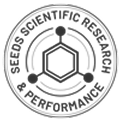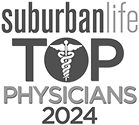
Stem Cell Injections for Shoulder Pain in Philadelphia: Heal Without Surgery
Medically Reviewed by: Dr. Steve Matta, DO, MBA, CAQSM
Stem cell therapy is a cutting-edge, non-surgical treatment for shoulder injuries that can be used to address many of the causes of shoulder pain. The shoulders are an incredibly complex joint, or, more accurately, an incredibly complex system of joints, bones, muscles, tendons, and ligaments. We use the shoulder every day in hundreds of ways, which means that pain in the shoulder impacts every aspect of your life.
Traditional shoulder pain treatments include pain and anti-inflammation medications, steroid injections, physical therapy, and surgery. Stem cell injections for shoulder pain are a regenerative treatment that trigger your body’s own natural healing responses. They can be used to heal rotator cuff injuries, arthritis, labral tears, and more, and are offered by Meeting Point Health in Philadelphia as part of our commitment to integrative healing that addresses the root cause of your pain.
In this article, we explore stem cell therapy for shoulder pain and how it may help reduce your shoulder pain—without surgery.
What Causes Chronic Shoulder Pain?
There are many causes of chronic shoulder pain, especially for adults over 35. These include injuries (e.g., rotator cuff tears), wear and tear from repetitive use, postural strain, degenerative conditions (such as arthritis), and inflammation. At times, the reason for shoulder pain may not even be clear, compounding over years of use and, often, misuse.
Traditional treatments for shoulder pain often offer short-term relief, masking or temporarily alleviating the symptoms. Regenerative medicine approaches such as stem cell therapy work by healing the root cause of your shoulder pain, offering long-term recovery.
Shoulder Conditions Treated with Stem Cell Therapy
Conditions that often respond well to stem cell injections for shoulder pain include:
- Rotator cuff tears or tendinosis
- Shoulder osteoarthritis
- SLAP tears
- Bursitis and tendonitis
- General joint degeneration
How Do Stem Cell Injections Work for Shoulder Injuries?
Stem cell injections help shoulder injuries by reducing inflammation, repairing damaged tissue, and promoting the body’s natural healing process.
Stem cells have the unique ability to develop into many different types of tissue like muscle, bone, or cartilage. This allows them to play a key role in healing by restoring damaged cells, calming inflammation, and supporting tissue regeneration.
In therapy, stem cells are typically taken from one of two sources; your own body or umbilical cord tissue from live, healthy births. The cells are then processed and precisely injected into the injured area of your shoulder. Once injected, they stimulate repair and regeneration in the damaged tissue. Over time, this leads to improved function, reduced pain, and better overall recovery.
What Makes Stem Cell Therapy Different?
Stem cell shots for shoulder injuries don’t mask or temporarily relieve the pain, instead, stem cells use the body’s own ability to heal itself. While it may take some time to see full results, Stem Cell therapy can offer long-term relief for shoulder pain and is an excellent alternative to surgery.
In the chart below, you can see how stem cell therapy differs from other, more traditional shoulder pain treatments.
| Treatment | Purpose | How It Works | Pros | Cons |
| Stem Cell Injections | Regenerate damaged tissue at the source | Uses biologic cells to support healing and reduce inflammation | Targets the root cause; long-term results; minimally invasive | Takes time to see results; not always covered by insurance |
| Corticosteroid Injections | Reduce inflammation and pain temporarily | Suppresses immune response and inflammation | Fast pain relief; minimally invasive | Temporary; may weaken tissue over time; repeated use discouraged |
| Pain Medications | Mask symptoms of pain | Alters pain perception in the nervous system | Accessible; fast-acting | Does not heal the injury; risk of dependence; side effects |
| Surgery | Physically repair or remove damaged tissue | Invasive procedure to reconstruct or remove damaged structures | May be necessary for severe damage | Long recovery; higher risk; more expensive; potential complication |
What to Expect During Your Appointment
Stem cell therapy typically includes four phases: consultation, diagnostics and imaging, the injection process, and follow-up care.
Most people experience some soreness and discomfort in the first few days immediately after receiving stem cell injections for shoulder pain. Applying ice packs throughout the day for 15-20 minutes at a time can help. Anti-inflammatory medications should be avoided for several weeks, as the inflammatory response produced by the injected stem cells is critical for healing.
How Many Treatments Are Needed?
Some patients only require a single injection to see improvement in their shoulder pain; others may need additional treatments. After each treatment, gentle use of the shoulder is encouraged to aid in healing, but strenuous activities are best avoided for several weeks.
How Long Until You Feel Improvement in Pain?
With intentional rest and follow-up, some patients may feel immediate improvement, while most patients begin to see improvements in their shoulder pain within several weeks. In some cases, improvement may take several months.
Are You a Candidate for Stem Cell Shoulder Treatment?
The ideal candidate to benefit from stem cells for shoulder pain is someone with chronic shoulder pain, a partial tear in the shoulder joint, or arthritis. They want relief from their pain—but also want to avoid surgery.
If this sounds like you, our team at Meeting Point Health in Philadelphia will conduct an individualized medical assessment to determine whether stem cell therapy is appropriate, safe, or effective to treat your individual concerns.
Who Might Not Qualify?
Stem Cell Therapy is not right for everyone. Patients with severe joint degeneration, active infections, or certain chronic diseases may not qualify for stem cell shoulder treatment.
Meeting Point Health evaluates each case personally and thoughtfully. When necessary, we will offer alternative treatment options that are aligned to your individual needs.
Stem Cell Therapy at Meeting Point Health in Philadelphia
Led by Dr. Steve Matta, a triple board-certified physician with expertise in Family Medicine, Sports Medicine and Stem Cell Therapy, Meeting Point Health is the leading integrative health provider in Philadelphia. Both Dr. Matta and Mary Anne Matta are Seeds Scientific Research and Performance (SSRP) Fellows in cellular medicine, providing them with advanced insight into stem cell and other regenerative practices.
If you’re dealing with shoulder pain that just won’t stop and you’re worried that surgery is your only option, book a consultation with our team to explore whether stem cell therapy is right for you. Simply schedule a discovery call or request more information from our team.
Helpful Links:
Related Reading
FAQs About Stem Cell Shoulder Injections in Philadelphia
Still have questions about stem cell injections for shoulder pain? Below are some of the most common questions we hear from patients.
What is the success rate of stem cell therapy for shoulder injury?
Current estimates suggest that the success rate of stem cell therapy for shoulder injuries is around 86%. This is significantly more promising than the rate of failure for shoulder surgeries, which is estimated as high as 30%.
How long will it take to experience pain relief?
Depending on the severity of your shoulder pain and the recommended number of treatments, patients usually start to see results within a few weeks.
How long do results last?
The results of stem cell therapy can last up to two years. With thoughtful care for your shoulder and overall health during that time, the results may last even longer.
What are the risks of stem cell shoulder injections?
While stem cell therapy is a safe and effective option to reduce shoulder pain, it does come with risks. The most common complications include infection at the injection site, bleeding, nerve damage. Allergic reactions may also be a concern, though the risk of cell rejection is lowered with the use of autologous cells taken from your own body.








